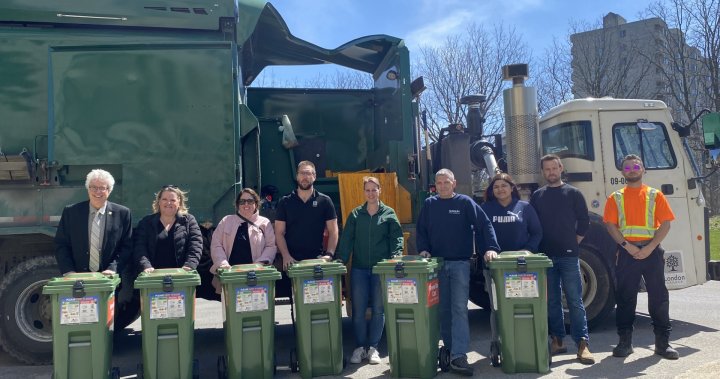The City of London is launching a green bin pilot project for multi-unit residential buildings, starting with 10 to 15 medium- and high-rise buildings in the next two months. The project aims to collect food waste separately from other garbage and learn about participation, resident feedback, and the collection amount. This information will help in understanding program costs and determining the needs of buildings in terms of green bin sizes. The collected food waste will be converted into electricity, reducing the overall program costs.
The project began with curbside pickup for single-unit dwellings in January, focusing on diverting food waste, which makes up about one-third of household waste. The pilot project is a collaborative effort to sort through waste and learn from other cities with similar programs, such as Ottawa, Hamilton, and Toronto. As the city experiences intensification and infill projects, multi-unit residential green bin pickup will play a crucial role in waste diversion from these buildings. The increasing number of apartment and multi-unit buildings generating similar amounts of food waste as single-unit homes necessitates this initiative.
Lisa Smith, a senior property manager at Norquay Property Management Ltd., anticipates high tenant participation in the pilot project due to their active engagement. Residents are provided with kitchen containers for segregating food waste, which is then collected in a centralized area during scheduled garbage pickup dates. Early feedback shows promising results, with residents quickly filling up the bins. If successful, the project will continue for six months to a year with the goal of becoming a permanent feature. Around 60,000 total units in 900 eligible buildings in London can benefit from the program.
The city and province hope that diverting even half of a household’s food waste would signify the project’s success. The pilot project is seen as a significant step towards sustainable waste management and reducing the environmental impact of food waste landfilling. By repurposing food waste into electricity, the program not only reduces costs but also contributes to the local grid. The success of the two initial buildings is expected to encourage other buildings to join the project and implement similar waste diversion strategies.
The green bin pilot project is a proactive approach by the City of London towards sustainable waste management, especially in the face of increasing urbanization and high-rise developments. By involving residents in sorting food waste and providing the necessary infrastructure for collection and conversion, the city is promoting a more environmentally friendly and cost-effective waste disposal system. The project’s success will depend on continued participation, feedback, and adaptation to meet the specific needs of multi-unit residential buildings. Overall, the initiative represents a positive step towards achieving waste diversion goals and creating a more sustainable urban environment.


